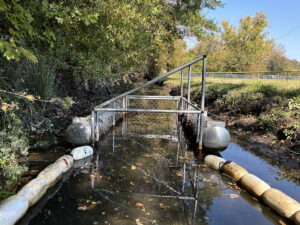News
N.C. Governor vetoes bad rulemaking bill
Environmental, Legislative, Neuse River Watershed, Sound Rivers, Tar-Pamlico Watershed, Water Quality
Posted on July 10th, 2025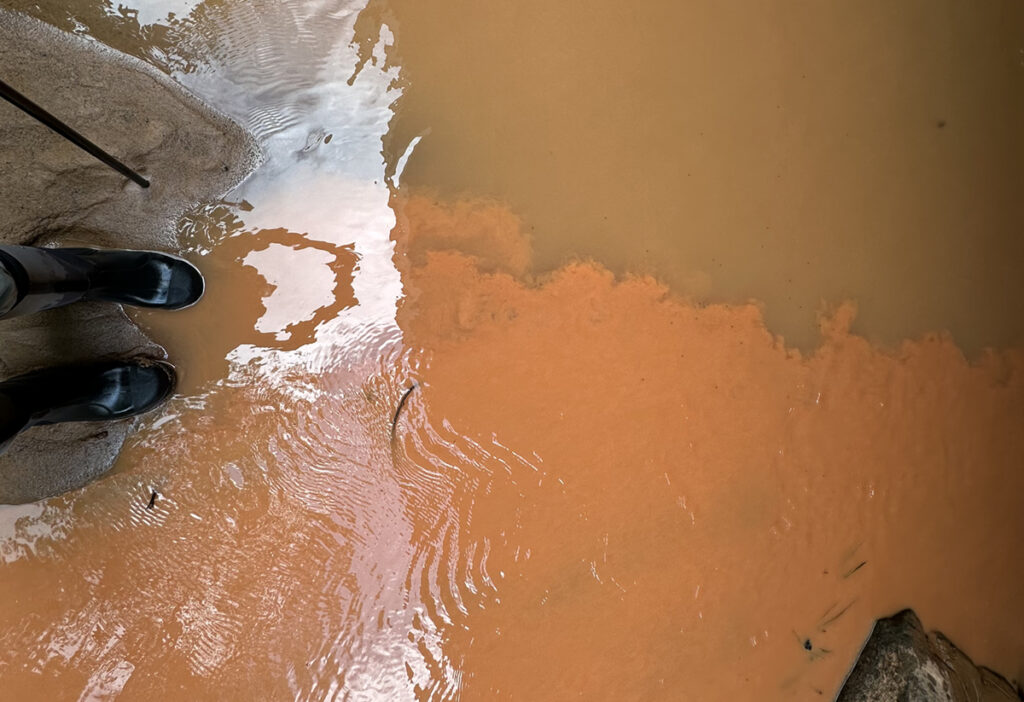
Neuse Riverkeeper Samantha Krop stands at the confluence of Martin Branch and Lick Creek in southeast Durham.
North Carolina Gov. Josh Stein has vetoed a bill that would have made passing environmental rules and regulations much more difficult.
But the work to protect the rulemaking process is not over, according to Sound Rivers Executive Director Heather Deck.
“We are grateful to Gov. Stein for vetoing House Bill 402 and working to protect state agencies’ ability to protect public health and our environment,” Heather said. “I would now encourage our readers to reach out to their state representatives and encourage them to uphold the veto because this bill would make it nearly, if not entirely, impossible to pass future rules and regulations needed to protect public health, our water and air resources and comply with future federal law changes.”
The bill is North Carolina’s version of the REINS Act, which is named so because it’s meant to rein in government oversight and severely curtail agency boards’ and commissions’ rulemaking abilities by requiring more fiscal analysis of bills: any rule that would cost the state more than $1 million over five years would require approval by two-thirds of the rulemaking commission/board; a rule costing more than $10 million to implement over five years would require unanimous approval of the commission/board; and if it cost more than $20 million, then it has to be voted on and approved by the legislature.
From Sound Rivers’ previous article regarding House Bill 402:
The state already has an onerous rulemaking system with a process for legislative review,” Heather said. “How rules work now is when the General Assembly passes laws, then it’s up to agencies to do develop the rules that comply with legislation. Sometimes they have to update rules to comply with new legislation or as new science and information is made available, and it’s up to the boards and commissions appointed by the legislature and the governor to do that — so there’s already a good mix of representation from both of those branches of government.”
The boards and commissions are formed of experts with varying levels of expertise that also bring a diversity of experience to each commission/board, Heather said, pointing out the Environmental Management Commission — the body responsible for adopting rules for the “protection, preservation and enhancement of the state’s air and water resources” — is made up of representatives from conservation organizations, industry, local governments and farming, which is very diverse, but could now severely hamper the commission’s work.
“Requiring a two-thirds or unanimous vote will essentially make it impossible for environmental rulemaking bodies to adopt most rules. Boards and commissions have been politicized by this legislature to the point where even a two-thirds vote will be unattainable,” reads a fact sheet from the Southern Environmental Law Center.
In addition to the approval requirements, HB 402 also removes the “benefits” part of the cost-benefit analysis every bill has previously been subject to. If passed, only the cost will be considered.
“So, for example, the EMC is looking at a bill that wants to remove a bad chemical from the water. The process of removing the chemical will cost the state money, but the benefits of removing it are so much greater because it will save lives,” Heather said. “HB 402 would remove the benefit comparison, so they’re not even looking at the benefits anymore.
“I don’t see how the state will pass future rules that are needed to protect public health, our water resources and air quality in the future if House Bill 402 passes,” she said. “This is a bad solution in search of a problem.
You can find your legislators by visiting the Find Your Legislators page on the North Carolina General Assembly website.
Related News
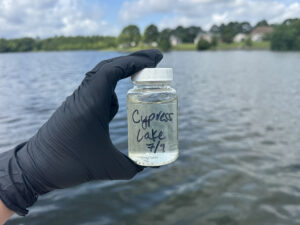
Specialist investigates lake connection to mysterious skin rash
July 10th 2025

Riverkeeper: Central NC flooding part of a much larger issue
July 10th 2025

N.C. Governor vetoes bad rulemaking bill
July 10th 2025

Riverkeeper, program director ‘Growing More than Rain Gardens’
July 10th 2025

Volunteer coordinator goes ‘fishing’
July 10th 2025
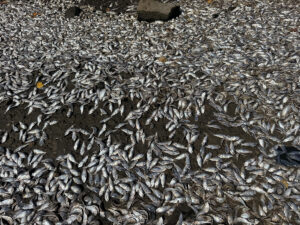
Neuse fish kill expected to extend beyond holiday weekend
July 3rd 2025
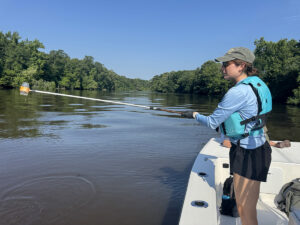
Swim Guide fails prompt Maple Cypress investigation
July 3rd 2025

Riverkeeper, town partners root out source of Smithfield sediment pollution
July 3rd 2025
